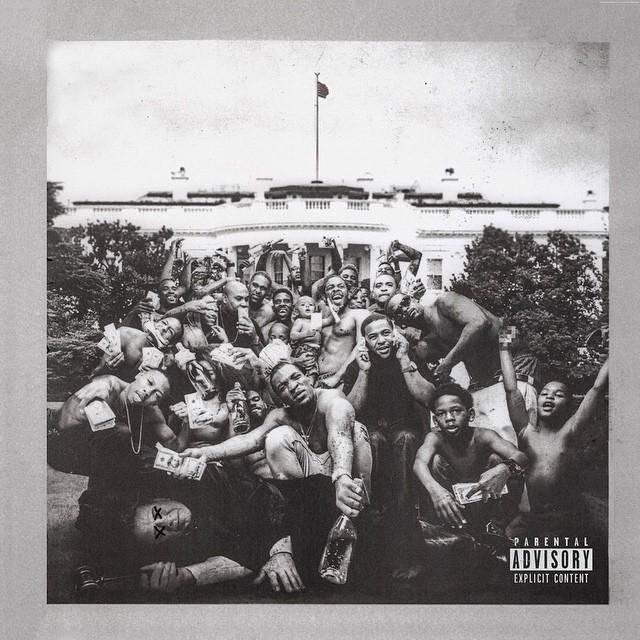You don’t have to take it from me. “How Much a Dollar Cost” is Barack Obama’s favourite song of this year. The album also has 11 Grammy nominations, more than any other. But the unanimous praise for Kendrick Lamar’s third studio album and its sprawling kaleidoscope of voices and styles doesn’t imply a consensus about why it’s a great piece of work. Some, including Obama, love his head-on take on political injustice.
Lamar appears to be presenting himself, alongside Tupac, as a spokesman for black music
If a generous, freewheeling musicality is the album’s first impression, the second is of a serious, frank engagement with the pre-eminent political issue of the violence and injustice facing black Americans. The album is steeped in the history and culture of racial politics to an impressive and comprehensive degree, some of it raw and scatalogical, some of it subtly allusive. There’s the cover photo, showing a group of black men squashing a judge on the White House Lawn; the evocation of Harper Lee in the album’s title; the reference to “King Kunta”, the slave celebrated in Alex Haley’s Roots; the satirical presentation in “Hood Politics” of the “DemoCrips and ReBloodlicans”; and the forthright lyrics discussing racial stereotypes, for example on “Blacker the Berry”: “My hair is nappy/ My dick is big/ My nose is round and wide/ You hate me, don’t you?”.
Then there’s Tupac. An interview with the pre-eminent rapper, celebrated and mourned for the quality of his music and his tragic early death, nearly 20 years ago, in a drive-by shooting, is quoted (with Lamar himself voicing the questions) in the 12-minute closing track “Mortal Man”, an extraordinary stream-of-consciousness essay about the obstacles facing black creative figures. Lamar (who, for all his virtues, is not short of self-confidence) appears to be presenting himself, alongside Tupac, as a spokesman for black music, holding a dialogue with Tupac about how music can express the anger of a people on the edge of revolt. And we come back to the beautiful, delicate image of a butterfly, which seems to represent abused black creativity, which Lamar, in a single album, both chronicles and celebrates.















Add comment